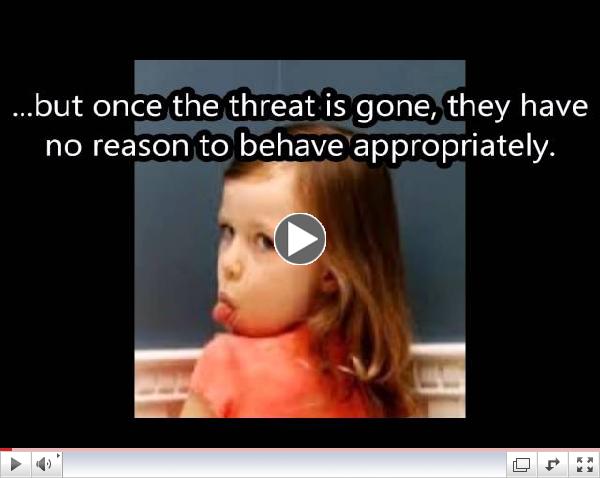Save the Date
MCH's 49th Annual Pediatric Postgraduate Course
February 27- March 2
2014
Register today!
www.ppgcpip.com
________________________
|
|
Does breast feeding result in smarter children?
| |
An extensive study of over 1,000 families (using a number of age appropriate tests) examined the relationship between breast feeding initiation, duration and exclusivity (taking into account a wide variety of variables) and child cognition assessed at 3 and 7 years of age.
While there has been a growing body of evidence indicating improvement in children's cognitive skills following breast feeding, this large study demonstrates and supports a significant positive relationship between duration of any breast feeding during the first year of life and child cognitive outcomes at 3 and 7 years of age. Adjusting for all covariates, every additional month of breast feeding during the first years of life appears to be associated with a significant increase in cognitive tests, drawing scale and visual memory scores.
JAMA Pediatrics
Journal of Human Lactation
|
|
Is amoxicillin/clavulanate treated recurrent otitis media ( rAOM ) bacterial relapse or caused by a new pathogen?
| |
66 pneumococcal conjugate vaccinated children, aged 6-36 months who experienced rAOM <1 month after completing amoxicillin/clavulanate treatment had 63 otopathogens recovered from their middle ear after tympanocentesis.
Nontypeable Haemophilus influenza accounts for 47% of initial AOM's, 42% of rAOM, and is the main organism (62%) that causes true bacteriological relapse. New pathogens causing rAOM significantly increase over time.
Pediatrics Infectious Disease Journal
|
|
Updates in Pediatrics is brought to you by:
| |
|
Underwriting Opportunities
|
With a circulation of over 4,900, Updates in Pediatrics offers an excellent opportunity to promote your brand at affordable rates.
|
|
|
Spanking & child development during the first 10 yrs of life.
The definition of child abuse varies across the United States. In Florida "abuse" means any act or threatened act that results in any physical, mental or sexual injury or harm that causes or is likely to cause a child's physical, mental or emotional health to be significantly impaired. Corporal discipline by a parent (or legal guardian) does not constitute abuse when it does not result in harm to the child (Florida Statute Civil Code 39.01(2)). A study of 1,933 children examined the prevalence of parental spanking at 3 and 5 years of age and the associations between spanking and children's externalizing behavior and receptive vocabulary through age 9 (compared to a matched control group). 57%-52% of mothers, and 40%-33% of fathers spank their children at 3 and 5 years of age respectively. Spanking by mothers or fathers (even at low levels) at 5 years of age appears to be associated with higher levels of children subsequently behaving badly and lower receptive vocabulary scores.
Pediatrics |
Video Feature
 | | The Effects of Spanking on Child Development |
via YouTube
|
Prenatal exposure to air pollution, maternal psychological distress & child behavior.
Air borne polycyclic aromatic hydrocarbons (PAH's),are pollutants generated by burning fossil fuel and other organic material, and have been shown to be associated with neurodevelopmental problems in children. Maternal psychological distress during pregnancy has similar results in the child.
A birth cohort study was undertaken of 248 children of non-smoking pregnant white women in a coal-burning region where prenatal PAH levels were measured and where a maternal demoralization instrument was used to calibrate maternal distress during pregnancy.
A Child Behavior Checklist was utilized to document behavioral problems in their children to age 9 years.
Maternal demoralization during pregnancy appears to have a greater causal effect of anxiety/depression, withdrawal/depression, social problems, aggressive behavior, internalizing and externalizing problems in their children where high prenatal PAH exposure occurs. Abnormalities in neurobehavioral development are multifactorial in origin.
Pediatrics
|
Apnea in children hospitalized with Bronchiolitis.
Inpatient apnea associated with bronchiolitis in children (<2 years of age) and independent of viral pathogen, is associated with:
- Corrected age <2 weeks and 2-8 weeks, compared with age >6 months.
- Birth weight <2.3kg.
- Preadmission respiratory rates <30/min, 30-39 or >70/min compared to 40-49/min.
- Preadmission room air oxygen saturations <90%.
- Previous apneic episodes.
Pediatrics
|
Avoiding endotracheal ventilation to prevent Bronchopulmonary Dysplasia (BPD).
A retrospective review of a number of databases which included randomized control trials that compared preterm infants <30 weeks gestational age, treated early with endotracheal intubation and mechanical ventilation (eMV) vs. a control group utilizing a strategy which avoided eMV, assessed whether eMV avoidance affected the incidence of BPD.
Avoiding eMV in infants <30 weeks gestational age significantly decreases the likelihood of BPD.
Pediatrics
|
|
|